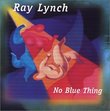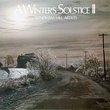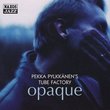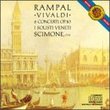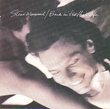| All Artists: Alan Hovhaness, Dennis Russell Davies, Seattle Symphony Orchestra Title: Alan Hovhaness: Symphony No. 22 ("City of Light"); Cello Concerto Members Wishing: 1 Total Copies: 0 Label: Naxos American Original Release Date: 1/1/2003 Re-Release Date: 4/15/2003 Genre: Classical Styles: Forms & Genres, Concertos, Historical Periods, Modern, 20th, & 21st Century, Instruments, Strings, Symphonies Number of Discs: 1 SwapaCD Credits: 1 UPC: 636943915820 |
Search - Alan Hovhaness, Dennis Russell Davies, Seattle Symphony Orchestra :: Alan Hovhaness: Symphony No. 22 ("City of Light"); Cello Concerto
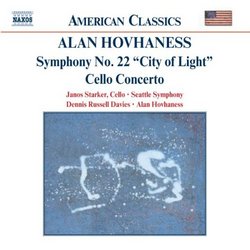 | Alan Hovhaness, Dennis Russell Davies, Seattle Symphony Orchestra Alan Hovhaness: Symphony No. 22 ("City of Light"); Cello Concerto Genre: Classical
Hovhaness wrote stunning music, and many of his symphonies are coming into their own both on recordings and in concert halls. Almost unknown, however, is his Cello Concerto, composed early in his career (1936). It's a nice... more » |
Larger Image |
CD DetailsSynopsis
Amazon.com Hovhaness wrote stunning music, and many of his symphonies are coming into their own both on recordings and in concert halls. Almost unknown, however, is his Cello Concerto, composed early in his career (1936). It's a nice, if not glorious, work, and it foreshadows much of his later output. In particular, in it one gets the sense of his mysticism and spirituality which permeates his symphonies. Janos Starker plays it handsomely, the orchestra is good, and the sonics are excellent. The Symphony No. 22, titled "City of Light," is grand Hovhaness, with massive brass statements and elegant contrapuntal doodlings. Again, playing and sound are first-rate. This CD is a beautiful bargain. --Robert Levine Similarly Requested CDs
|
CD ReviewsAmazing Richard A. Cavalla | NJ, USA | 07/07/2003 (5 out of 5 stars) "Wow. I had never heard Alan Hovhaness before, but decided to give this budget disc on Naxos a try. After all, I had been impressed with a number of other discs in the label's "American Classics" series. I was a little tentative though, because I have heard Hovhaness compared to Philip Glass and Arvo Part, two composers who I find incapable of sustaining long form works. While Hovhaness shares some traits with those composers, particularly in his simple (but not simplistic!) harmonic language, he has a much firmer grasp of drama and structure. The cello concerto is an overwhelmingly slow work, with about 90% being slow or moderate in tempo. Nonetheless, the cello writing is beautiful, though certainly not virtuosic, and the interplay between the various sections of the orchestra give it a chamber-music feel. The Symphony, however, is the real masterpiece on this disc. It is a grand, towering, moving work that reminds me of Rautavaara meets Bruckner. It is still mostly moderate in pace, but more varied in its tempos than the cello concerto. The finale is one of the greatest things I have ever heard, and I have heard a *lot* of music and have hundreds and hundreds of CDs in my collection. It has an air of brilliance and triumph that, to me (and I kid you not), rivals the finale of Beethoven's Ninth (albeit minus the vocal soloists). If you are new to Hovhaness, this is a magnificant place to start." A Deserving "American Classic" Robin Friedman | Washington, D.C. United States | 04/29/2003 (5 out of 5 stars) "The late Alan Hovhaness (1911-2000)was a prolific and gifted American composer. He enjoyed a degree of popular success during his lifetime although he did not achieve the critical recognition he deserved. His work is melodic, accessible and heavily influenced by eastern music, mysticism, and nature.Naxos has included this CD consisting of Hovhaness' early Concerto for Cello Opus 17 (1936) and his 1971 Symphony, "City of Light" as part of its "American Classics" series designed to introduce the listener, at budget prices, to the range of American achievements in the composition of classical music. Hovhaness merits inclusion in this series (he deserves more than one disc); and this CD is a good introduction.The Cello concerto of 1937 is an early work. The recording here dates from 1999 and features the renowned cellist Janos Starker playing with the Seattle Symphony. The concerto shows Hovhaness, I think, under the deep influence of Jean Sibelius, whom he visited as a young man. The concerto is in three movements with the outer two slow and lengthy movements surrounding a brief allegro movement. There is substantial interplay in the outer movement of this work between the cello and the solo flute together with long orchestral interludes. There are long, melodic lines and moments of lyricism particularly in the third movement. The liner notes repeat a legend that has grown with the telling that Hovhaness destroyed "close to 1000" works in 1940 but spared this concerto. Hovhaness did have a commendable capacity for self-criticism, but my understanding is that this story and the number of works at issue has grown with the years. Be that as it may, this cello concerto is an appealing work.The second work on the CD, the 1971 "Symphony of Light", Opus 236 is music on a high level. Hovhaness wrote this symphony under a commission from the Birmingham Symphony Orcestra (Alabama). The recording here dates from 1992 and features Hovhaness himself conducting the Seattle Orchestra.This is a four-movement symphony of about 30 minutes featuring extended slow opening and concluding movements surrounding two exquisite, very short movements. The work well deserves its name "City of Light". It is in an eloquent, elevated, mystical tone throughout. It features long intertwining string themes played by the strings with comments from the winds, and percussion. It has a highly eastern flavor. The climax of this symphony is in its final movement which closes with an extended fugue on a lengthy melody played in the lower strings.As I listended to the Symphony, I couldn't help remember the Birmingham, Alabama of 1963 in which police dogs and fire hoses were unleashed on Martin Luther King and his followers in the cause of Civil Rights. This symphony, written only eight years after these events, speaks to me of a city of promise and love, dedicated to high ideals and open to all. The music is both elevated and accessible and paints a tonal picture of aspiration for Birmingham specifically, perhaps, but for all our cities as well. This is music of a uniquely mystical and American stamp.The listener will enjoy getting to know the works of Alan Hovhaness in this fine CD." Early Hovhaness Meets Some Marvelous Vintage Hovhaness Richard A. Cavalla | 05/14/2003 (5 out of 5 stars) "If you're a Hovhaness completist (that's a joke, son!) or a listener whose taste runs to the musical orientalism of, say, Lou Harrison, you'll want to hear Hovhaness's early Cello Concerto. Long before the East-meets-West raprochement was fashionable, or even acceptable, in American music, Hovhaness was apparently doing it in works as ingratiating as the concerto. Though the piece is somewhat wayward and includes more than its share of longeurs, it also has that static, contemplative beauty that can be found the best of Hovhaness's later works, as cello and winds toss modal filigrees about between hymn-like episodes for the orchestral strings and brass. It all has a rather hypnotic effect that you want to return to. And then it's always good to hear the legendary Janos Starker again, even if the concerto is hardly a showpiece for the solo cello.On the other hand, if you like the classic Hovhaness of "Mysterious Mountain," you will certainly relish the "City of Light" Symphony. While architecturally the two works are dissimilar (the fast music of "Mysterious Mountain" coming toward the center, while the reverse is true in the later work), they both have the same by turns reverential and monumental quality that places them, for me, among the finest of American symphonies. At the mystical heart of Symphony No. 22 is the gentle second movement called "Angel of Light," apparently a reminiscence by the composer of Christmas as a child. Magically inflected by harp and then celesta, it effectively combines the naive and the deeply spiritual. The last movement retuns us to the majesty of the first movement but with an added triumphalism that builds to a resounding close punctuated by the tam-tam. Bruckner would have understood. In fact, this music clearly marks Hovhaness as America's Bruckner among symphonists, not bad company to be in, I'd say.Hovhaness himself conducts the symphony on this CD, and the performance can certainly be thought of as difinitive. And since this recording was licensed from Delos (a real coup for Naxos, I think), the CD benefits from Delos' usual high production standards. For many collectors, this will be a must-have disc."
|

 Track Listings (7) - Disc #1
Track Listings (7) - Disc #1